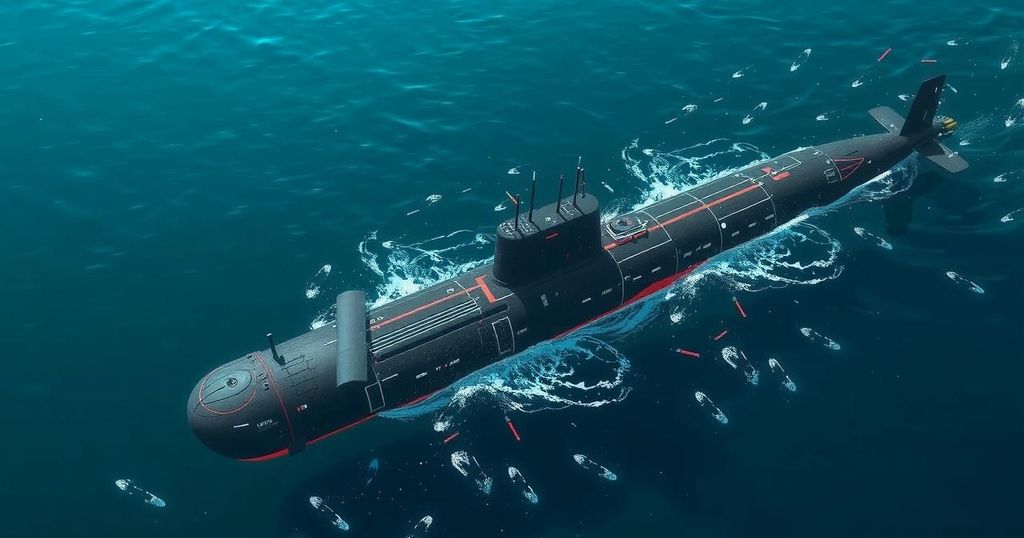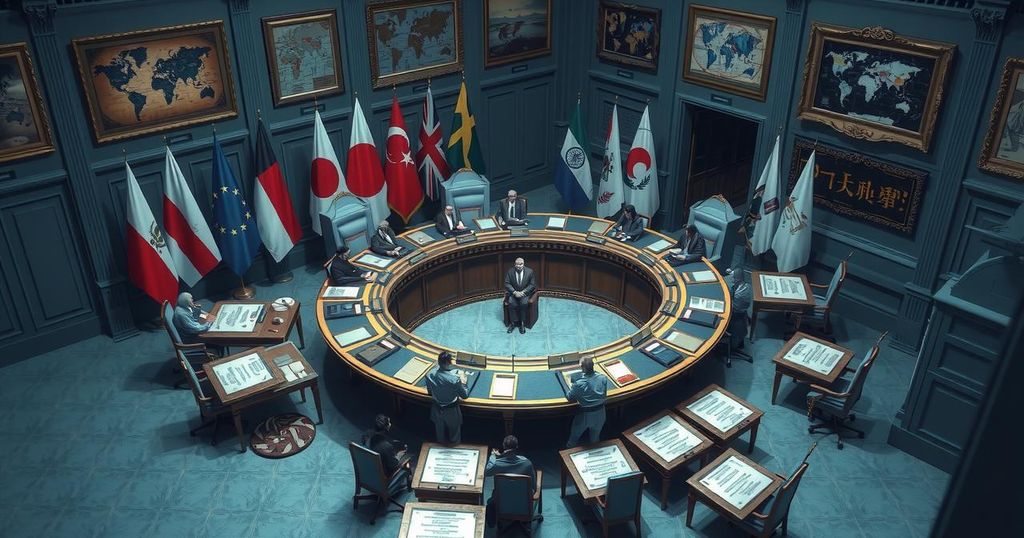Politics
ASIA, BRP SIERRA MADRE, CHINA, COAST GUARD, EUROPE/ASIA, FERDINAND MARCOS JR, JAY TARRIELA, JONATHAN MALAYA, MALAYSIA, MALAYSIAN NAVY, MARITIME SECURITY, MEXICO, NATIONAL SECURITY COUNCIL, NAVY, NORTH AMERICA, PHILIPPINE COAST GUARD, RUSSIA, TERRITORIAL DISPUTE, TERRITORIAL DISPUTES, UNITED STATES, VLADIVOSTOK, WEST PHILIPPINE SEA
Nia Simpson
Philippine President Alarmed by Russian Submarine Presence in South China Sea
Philippine President Ferdinand Marcos Jr. expressed concern about a Russian submarine sighted in the South China Sea. The submarine was identified as returning to Russia after naval exercises. Amid rising tensions with China, the Philippine military increased surveillance and protection for local fishing areas threatened by Chinese forces.
Philippine President Ferdinand Marcos Jr. has expressed deep concern following the sighting of a Russian submarine in the South China Sea. Security officials reported that the submarine, which had been participating in exercises with the Malaysian Navy, identified itself during a radio inquiry from the Philippine Navy and claimed it was returning to Vladivostok, Russia. Despite having the right to “innocent passage” through the Philippines’ Exclusive Economic Zone (EEZ), the vessel’s presence sparked significant apprehension among Filipino officials and military personnel, leading to the deployment of naval ships and aircraft to monitor the submarine’s movements.
The submarine was spotted approximately 80 nautical miles off the coast of Mindoro after surfacing due to adverse weather conditions. President Marcos stated, “All of that is very concerning.” He emphasized the worrisome nature of any foreign presence in the West Philippine Sea, especially amidst escalating tensions in the region that have involved aggressive maneuvers by Chinese forces. Marcos’s statements highlight the Philippines’ ongoing challenges in defending its maritime rights against more assertive actions from Chinese naval and coast guard vessels, particularly given recent territorial confrontations.
An incident involving Chinese military helicopters harassing Filipino fishing boats has underscored these tensions. The Philippine Coast Guard has deployed patrol ships to secure disputed areas like Iroquois Reef, which China claims, amidst ongoing friction over fishing rights in the region. China’s aggressive claims and military assertiveness have led to several confrontations that have resulted in injuries and damages, prompting international scrutiny and support for the Philippines’ maritime sovereignty.
The South China Sea is a critical waterway with significant geopolitical and economic implications. Multiple nations, including the Philippines, Vietnam, and Malaysia, contest various territorial claims in this region, which has become a flashpoint for military confrontations, particularly involving China. The Chinese government asserts extensive claims over virtually the entire South China Sea, despite a 2016 ruling by an international tribunal that invalidated such claims. Consequently, incidents involving foreign vessels, particularly from Russia and China, have raised alarms regarding the Philippines’ maritime security and national sovereignty. Under international law, vessels can claim innocent passage within another nation’s EEZ, complicating issues of jurisdiction and territorial integrity amid increasing militarization by China.
The sighting of a Russian submarine in the South China Sea has highlighted the complexities of maritime security in a region beset by territorial disputes. President Ferdinand Marcos Jr. voiced his concerns regarding foreign naval presence in Philippine waters, emphasizing the need for vigilance in the face of aggression from both Russian and Chinese forces. As tensions continue to escalate in this vital trade route, the Philippines’ military and diplomatic strategies will be crucial in safeguarding its maritime interests and engaging with international partners for support.
Original Source: www.abc.net.au








Post Comment